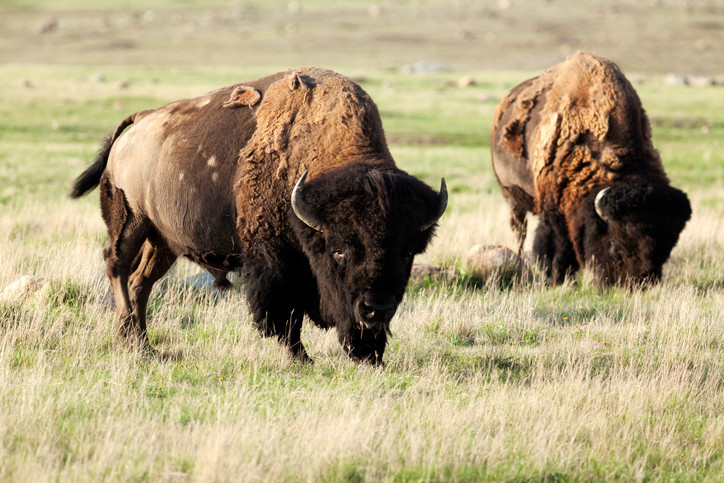Bred heifers can sell for as much as $6,000, Neil Hochstein says
By Diego Flammini
News Reporter
Farms.com
People interested in entering the ag industry, but who are unsure of where to start, should consider raising bison, says Neil Hochstein, a bison producer and member of the Bison Producers of Alberta board of directors.
Hochstein raises 200 bison on 2,000 acres of land at his Alberta Bison Ranch in Mayterthorpe, Alta. He grows his own feed, finishes the bison and markets the meat himself.
One of the reasons bison farming is a booming industry, he says, is because the animals are more self-sufficient than other livestock herds.
“You don’t have to be out there calving your cows and checking them every two hours,” he told Farms.com today. “You cannot disturb the situation. You also don’t have to worry their feed.”

The industry’s sustainability might also make bison farming an interesting venture.
When the United States banned Canadian cattle and bison due to the 2003 BSE outbreak, prices plummeted.
“People were paying $50 for a cow,” Hochstein said. “The bison market really crashed and a lot of people got out of the industry.”
Canada exported 991 bison to the U.S. in 2003 and none in 2004, according to the Canadian Bison Association (CBA).
Once the U.S. lifted the ban in the second half of 2003, the industry slowly started to get back on its feet.
Canadian producers had 119,314 bison in 2016, according to Statistics Canada. And farmers exported 22,526 bison (or 18 per cent of the total herd) to the U.S. last year, according to the CBA.
Bred heifers now sell for between $5,000 and $6,000 each, Hochstein says, adding that market demand continues to be high.
“There’s simply not enough supply to meet the demand and we aren’t worried about our prices dropping.” he said. “Not everyone in the world is producing bison. We’re one province in one country raising bison for the rest of the world.”